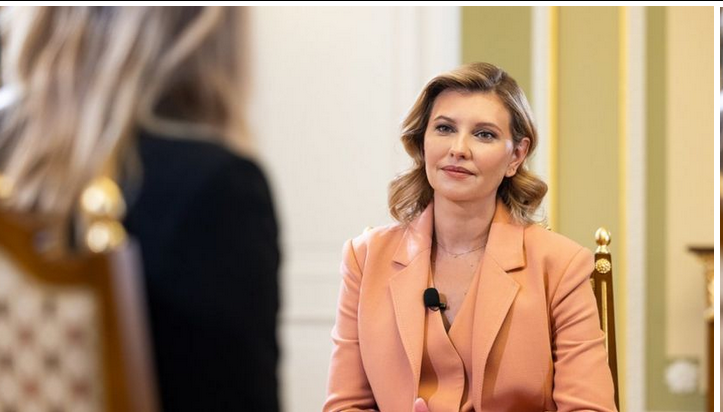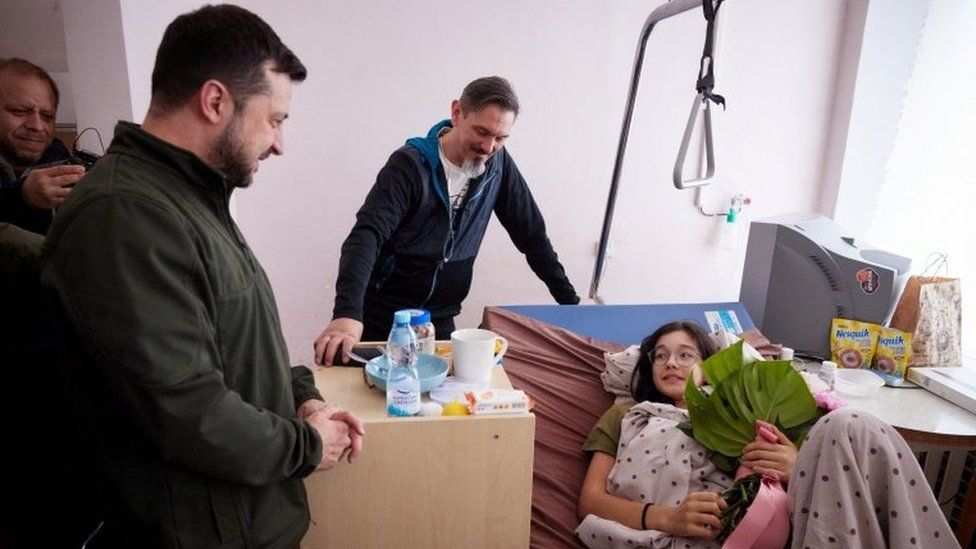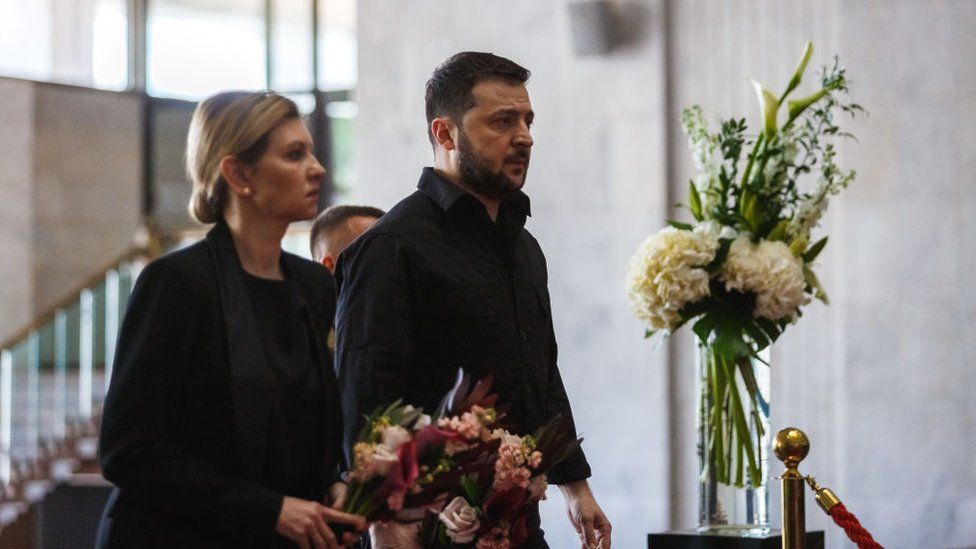
Olena Zelenska tells Laura Kuenssberg about the human cost of the war
The economic impact of the war in Ukraine is tough on its allies, the country’s first lady has told the BBC, but as Britons “count pennies”, Ukrainians “count casualties”.
Olena Zelenska told Sunday with Laura Kuenssberg that if support for Ukraine was strong the crisis would be shorter.
In an interview recorded in Kyiv, she also said it was important to keep highlighting the human toll of the war.
And Mrs Zelenska said while she rarely saw her husband, they talk every day.
The first lady, who has been married to Ukrainian President Volodymyr Zelensky since 2003, spoke to the BBC’s Laura Kuenssberg in Kyiv.
In a wide-ranging interview to be broadcast on Sunday 4 September, Mrs Zelenska was asked what message she had for British people who are facing soaring energy bills in part due to Russia’s invasion of Ukraine and the impact that has had on global gas and oil prices.
“I understand the situation is very tough. But let me recall that at the time of the Covid-19 epidemic, and it’s still with us, when there were price hikes, Ukraine was affected as well.
“The prices are going up in Ukraine as well. But in addition our people get killed.
“So when you start counting pennies on your bank account or in your pocket, we do the same and count our casualties,” she said.
Mrs Zelenska’s comments follow Prime Minister Boris Johnson’s suggestion while visiting Kyiv last month that households across Europe would have to endure the cost of living crisis and “stay the course” with Ukraine to counter Russia’s aggression.
In the UK, the inflation rate is forecast to hit a 42-year high of 13.3% this year, while the economy is expected to shrink for more than a year.

The Bank of England said the main reason for high inflation and low growth was rising energy bills, fuelled by Russia’s invasion of Ukraine.
European countries have accused Russia – a major global supplier of energy – of using gas as a weapon by limiting supplies in response to sanctions.

Mrs Zelenska told the BBC that it was hard for people outside Ukraine to understand the impact of the war on its people but it was important to share human stories about the toll the conflict was taking.
She said that many parents would have been moved by the story of a Ukrainian boy who was filmed crossing the Polish border in floods of tears last March.
“I think that fathers and mothers watching this video could not but break into tears. I always place myself in their situation and I think that everyone – every human in the world should feel the same,” Mrs Zelenska said.
“That’s why we have to tell these stories, to show these stories, because these are the faces of a war. Not the number of bombs dropped, not the amount of money spent, human stories – and there are a thousand stories like that around.”

The first lady, who comes from the same town as her husband and has known him since university, said she was “insulted” by people who said they were surprised at his transition from TV actor to wartime leader.
“He’s the man I’ve always known. He wouldn’t do anything else,” she said.
Asked whether she hoped to come to the UK after it was chosen to host the Eurovision Song Contest because Ukraine – which won the event this year – was deemed to be too unsafe, Ms Zelenska said she would “love to go” .
But she added it was a “bitter feeling” to accept the winners would not be next year’s host.




